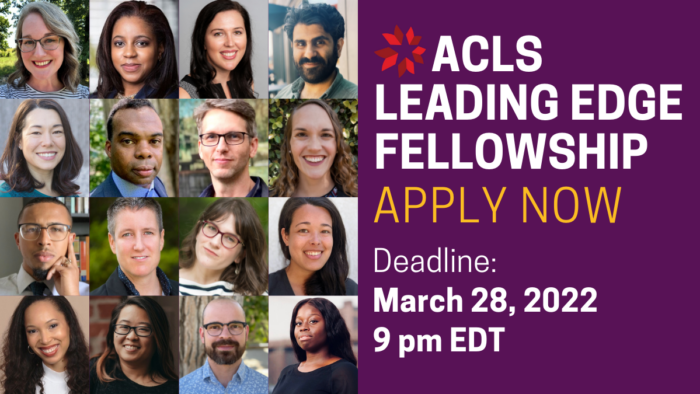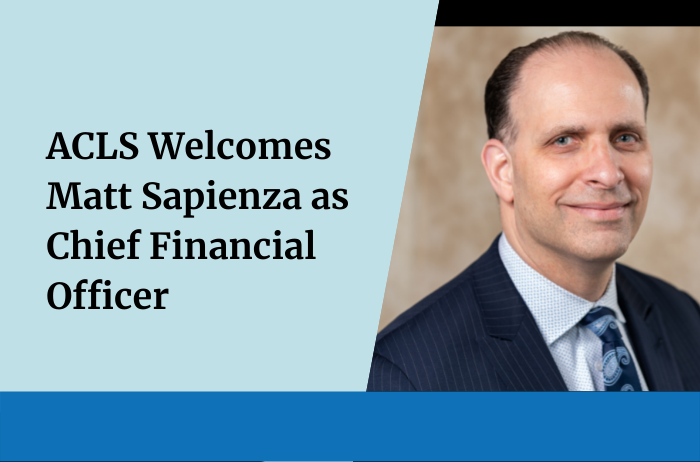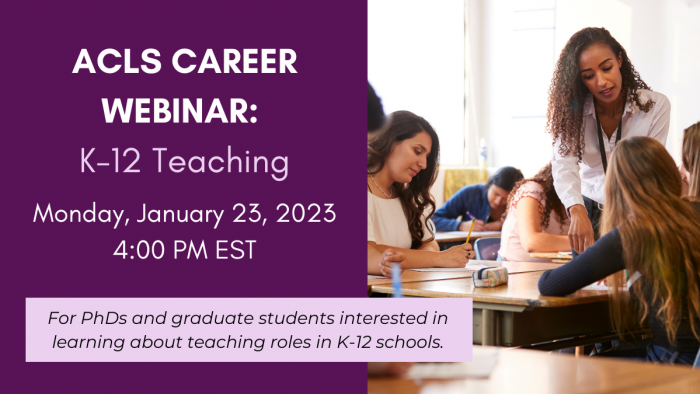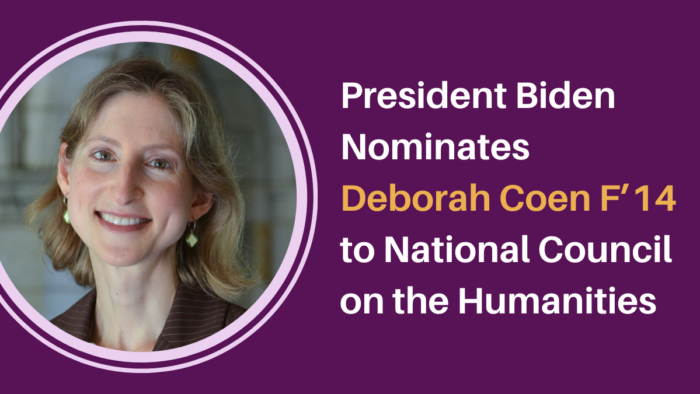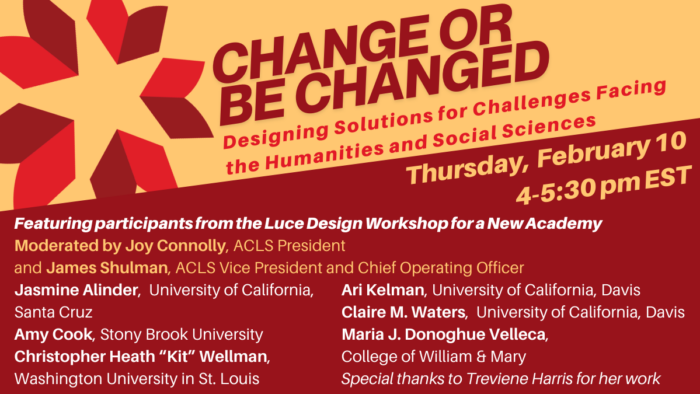

It’s graduate admissions season! For those in the ACLS community who work in departments with graduate programs, you are wrapping up recruiting calls, managing wait lists, and preparing orientations. We wish you all the best in the tough decisions you’ll be making.
During my time as provost of the Graduate Center at CUNY, and today at ACLS working with the Mellon Intention Foundry, the Luce Design Workshop, and our Emerging Voices Fellowship convenings, I’ve enjoyed many wide-ranging conversations with graduate students about their experiences. The quality of seminar design, expectations around exams and advising, the friendly or unfriendly attitudes of faculty toward students open to careers beyond academia – these are just a few examples of what can make or break an emerging scholar’s career. As we all know, scholarship isn’t pursued in a vacuum.
From the conversations I’ve been fortunate to have in recent years, I’ve identified three positive signs that a graduate program is intellectually exciting, inclusive, and self-reflective in a way that keeps it open to new methods and perspectives: regular meetings, consistent communication about expectations, and collaboration.
I’ve identified three positive signs that a graduate program is intellectually exciting, inclusive, and self-reflective in a way that keeps it open to new methods and perspectives. Joy Connolly
Many programs around the country adopted these practices years or even decades ago. Others observe one or two or none. From what graduate students consistently say, I think that the chances of making getting a PhD a rewarding experience for every student increase when all three are present.
For reasons of brevity, I’m focused here on doctoral programs; I’ll talk about masters programs in a future message.
Right now at ACLS, we are convening selection committees for our many fellowship and grants programs, immersing ourselves in descriptions of projects that represent an amazing, humbling breadth of learning and vision. We can get lost in admiring the scholarship that comes across our desks – the habits of rigorous investigation, the endless curiosity, the fire of commitment to extraordinarily challenging projects. And so we should! The quality of the work and of the people doing it deserves our applause.
At the same time, our thoughts regularly turn to the day-to-day experience of scholars and how we might work to improve those conditions. I hope this message prompts reflection and discussion – and suggestions for other measures that improve doctoral education.
Best wishes to all in this busy winter season! 
Joy
To Winter
By Claude McKay
Stay, season of calm love and soulful snows!
There is a subtle sweetness in the sun,
The ripples on the stream’s breast gaily run,
The wind more boisterously by me blows,
And each succeeding day now longer grows.
The birds a gladder music have begun,
The squirrel, full of mischief and of fun,
From maple’s topmost branch the brown twig throws.
I read these pregnant signs, know what they mean:
I know that thou art making ready to go.
Oh stay! I fled a land where fields are green
Always, and palms wave gently to and fro,
And winds are balmy, blue brooks ever sheen,
To ease my heart of its impassioned woe.
Sign up for the monthly ACLS Community Newsletter, as well as announcements and updates about programs, events, and more.

